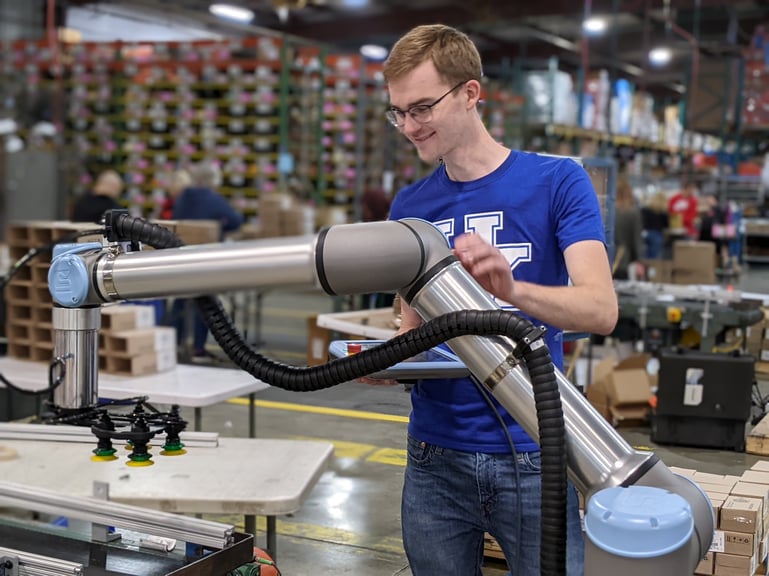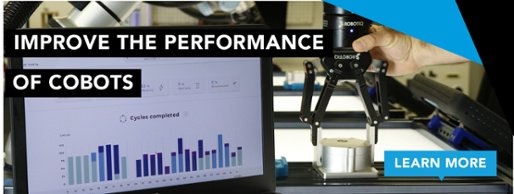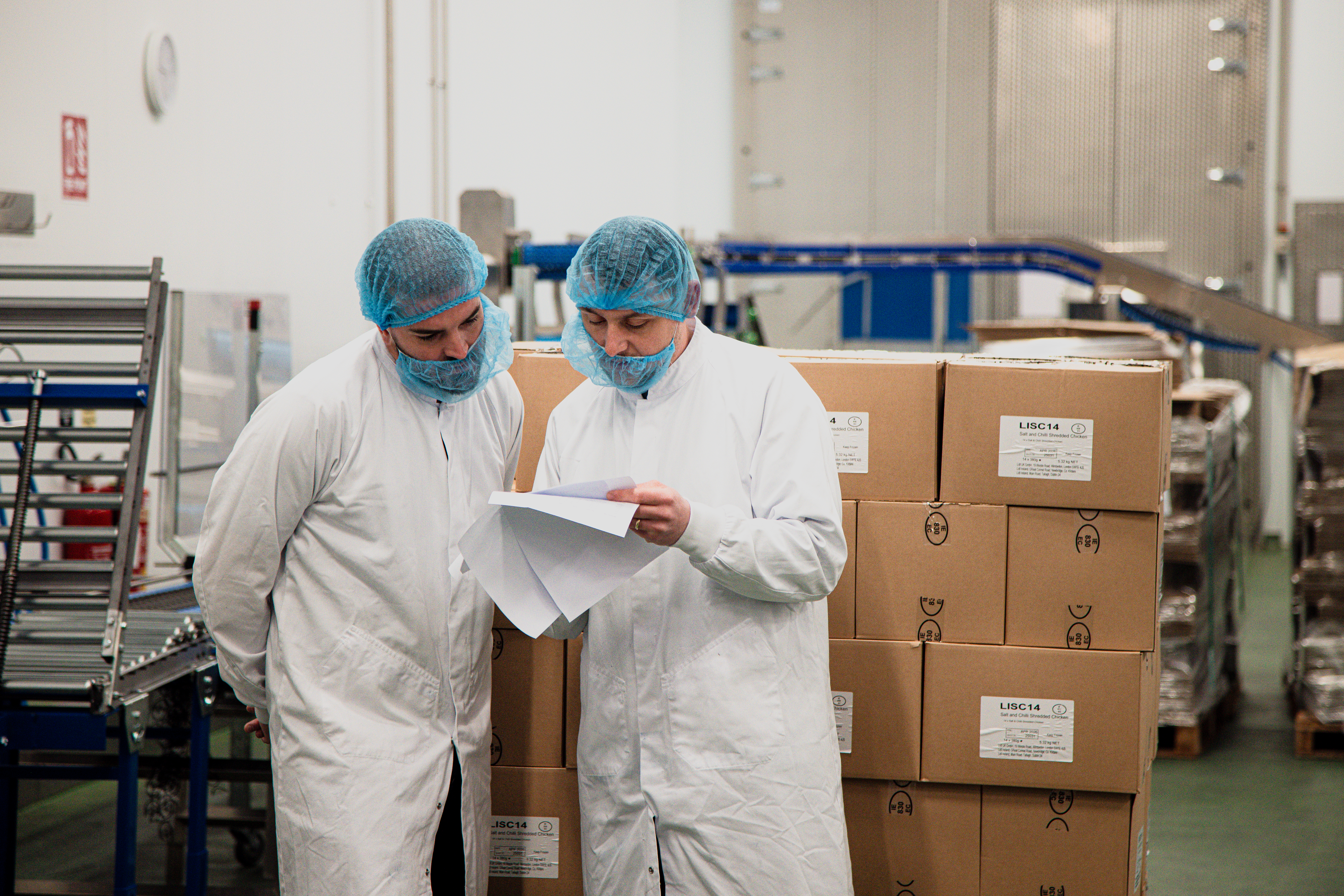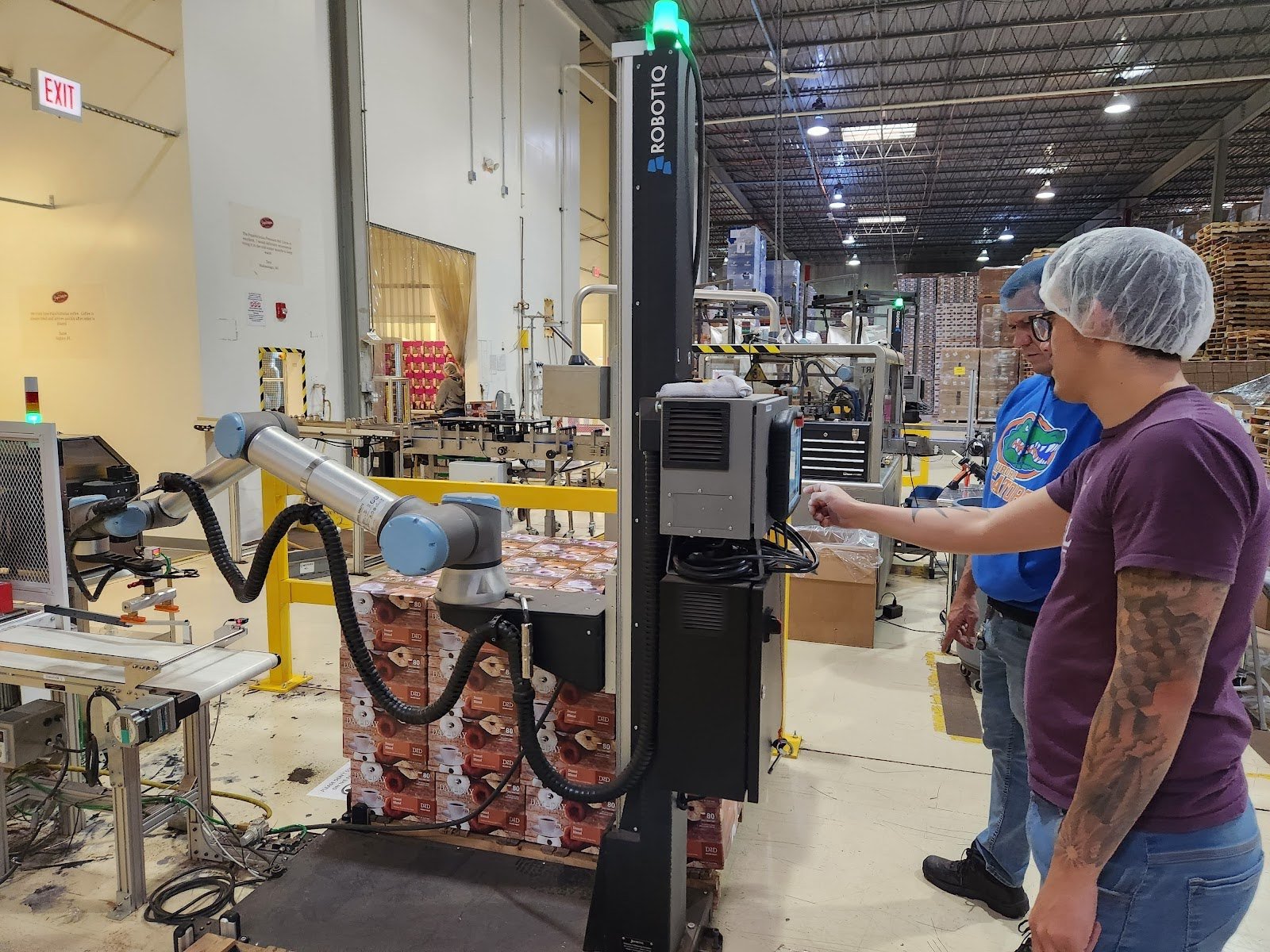The Human View of Robot Workers: What Do Employees Really Think?

Robot workers are transforming the way we work. There is no denying that they are here to stay… but this raises some interesting questions about the interaction between robots and employees.
If you want robotic solutions to be a success in your business, it's important to consider how the technology will influence your employees.
Do people see robot workers as an opportunity or a threat?
When did the current distrust towards automation in work begin?
How can human workers stay competitive and relevant alongside automation?
Let's explore the view of human employees on the rising adoption of robots to discover how you can make robots work best for you and your business.
Robot workers and their impact on human employees
Investing in robotics can benefit businesses immensely, including improved scalability, reduced costs, and more consistent products.
In many industries, robots are increasingly being used for jobs previously done by human employees. Though the exact impact of robots on jobs remains hotly debated, it's undeniable that robots change the nature of some people's work.
The statistics on job displacement caused by automation vary quite a lot. According to some recent reports, automation stands to displace 3 out of every 10 jobs, especially those that are tedious and repetitive.
The leading media narrative around robots is that they take jobs from humans. But is this really what your employees think is going to happen?
And just because automation impacts displacement, this doesn't mean that people are actively "losing" their jobs to robots.
What real people think about robot workers in the workforce
One study from the Harvard Business Review found that people's views on robot workers are mixed. While some people fear that they may be replaced, many more people see robots as an opportunity.
Those workers who are positive about the technology say that robot workers have made their jobs more efficient and reduced human error.
For example, one warehouse supervisor in the study said "I think the more the warehouse is automated, the better we'll all perform. Robots will greatly diminish our workloads, reduce risks, and increase productivity. But if we don't know how to handle them, they're hardly going to do any good."
The above quote also highlights a common concern about robots — that people won't have the right skills to use the robots. This is possibly the most common concern alongside the fear that people's jobs will be taken.
The big shift: What's changing and when did it start?
The current move towards more automated ways of working might seem recent. But, in fact, the transition has been underway for some time. The history of "automation anxiety" is a long one.
Arguably, the modern incarnation of automation anxiety started in the 1950s. At the time, electronic data processing emerged as a way for businesses to automate simple and repetitive data processing tasks. With the advent of this technology came a shift in the nature of many jobs, which people were afraid of at the time.
The presence of robots in previously human roles is causing similar reactions. We will all almost certainly readjust to this new way of working. But it will take time.
Ultimately, robot workers have the potential to reshape not just the nature of work but also how people feel about their jobs and roles in society. It's important for us to take a proactive approach so that we fully understand our employees and their concerns. This will help everyone get the most from an investment in robots.

Ways human workers can remain competitive alongside automation
If people are worried about their job security in your business, one thing that can be helpful to explore is how they can keep themselves relevant in the modern workforce. This can help them understand how much they still have to contribute that robots probably can never match.
How can you help your human workers see they will remain competitive in a world increasingly filled with robots? The key is to highlight those parts of their job that require very human capabilities.
Robot workers are great at repetitive, mundane tasks. A task like robotic palletizing or pick and place is extremely boring for a human to perform. But a robot can do it ceaselessly and perfectly every time.
Core skills that robots lack include decision-making and complex problem-solving capabilities. These are skills that humans excel at. When you focus on developing and rewarding these in your employees, they will see how much you value them as members of your team.
Other highly valuable skills for employees include critical thinking, creativity, communication, and interpersonal abilities. It's a good idea to provide ongoing training and support for employees to develop these skills, as well as providing training on how they can use robotic technologies themselves.
The changing way we work and what to expect in the future
What can we expect from the robot workers of the future?
As robotic technology continues to advance, it seems likely that robots will become increasingly sophisticated. They will be able to perform more complex tasks and even use artificial intelligence for simple problem solving.
On the whole, this is a good thing for human employees. Complex technologies always need skilled and intelligent people to work alongside them to use them best.
As long as we continue to educate and develop employees and their skills, humans will always remain a core part of every business… especially those businesses that use robots.
What concerns do you and your people have about robots? Tell us in the comments below or join the discussion on LinkedIn, Twitter, Facebook, or the DoF professional robotics community.








Leave a comment